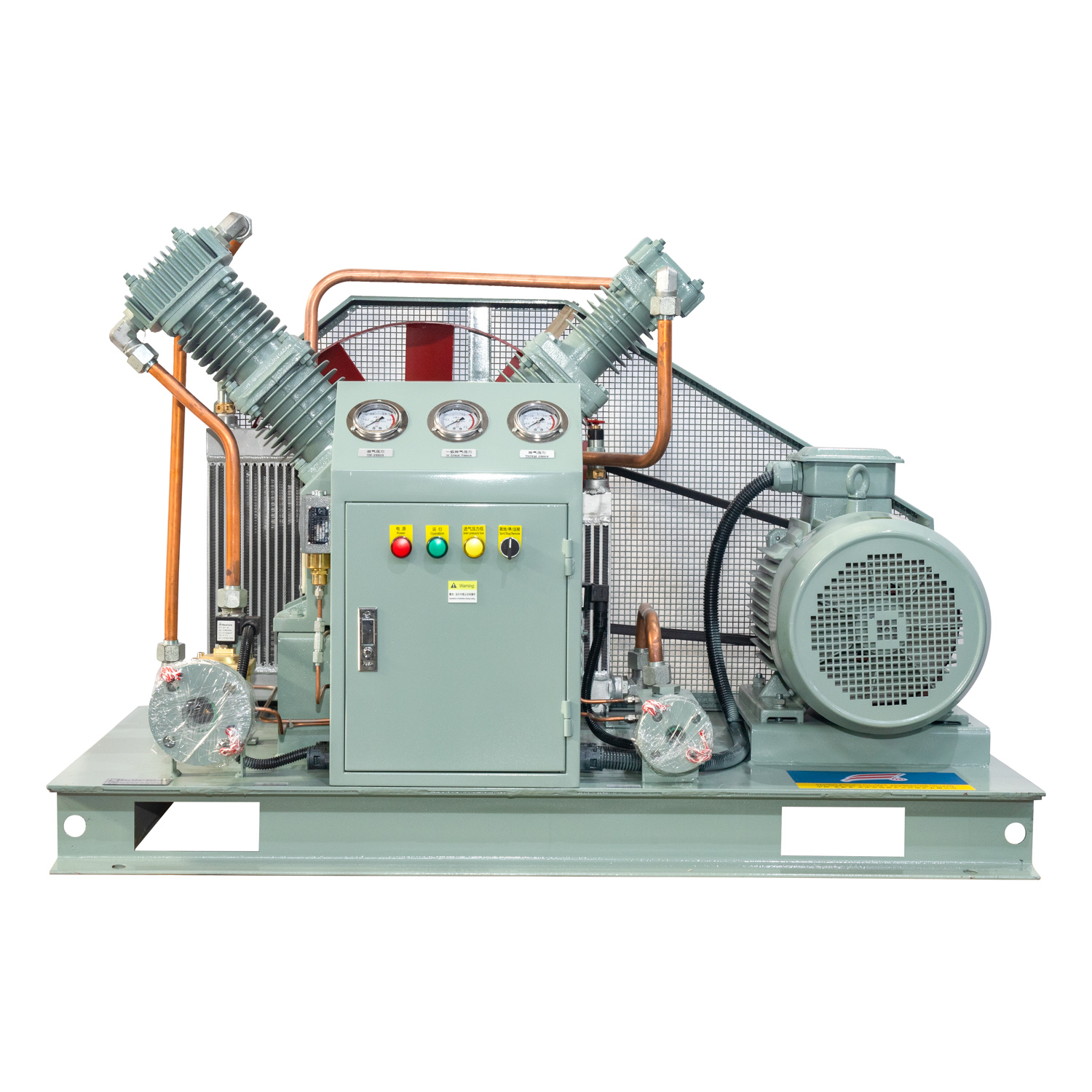-
WhatsApp / Mob : +86 156 5177 2521
-
Email : mrwin@cnbangwin.com
WhatsApp / Mob : +86 156 5177 2521
Email : mrwin@cnbangwin.com
Booster Compressor | High-Pressure Air and Gas Compression Solution
Nov 06 , 2025
Booster compressor is a device to raise the pressure of a previously compressed air or gas to the required high pressure.
The system is used in a variety of industrial applications, such as energy, manufacturing and chemical processing.
Equipped with the latest design and technology, booster compressors provide efficiency, safety and long service life.
In addition, booster compressor offers flexible pressure range and easy integration with existing systems.
For this reason, many companies have chosen to use this equipment to ensure stable and high-performance performance.
What Is a Booster Compressor
How It Works
Main Components
Advantages of Using a Booster Compressor
Applications in Industry
Maintenance Tips
Frequently Asked Questions (FAQ)
Conclusion
A booster compressor is a mechanical device that increases the pressure of a gas or air from another compressor. It is designed to receive pre-compressed gas and enhance the output pressure to a higher level. This allows the end user to get the working pressure required for the industry without overloading the main compressor.
It can support various gases, including air, nitrogen, hydrogen, and natural gas. In addition, booster compressors provide high accuracy and stability for demanding system requirements. Their compact structure and intelligent cooling design ensure continuous operation in demanding environments.
A booster compressor works in several stages. First, the pre-compressed air enters the inlet port. The piston or screw element then compresses the air to a higher pressure. Finally, the compressed air flows out through the discharge port to the storage tank or the production line.
Oil-lubricated or oil-free booster compressors are designed for different industrial applications. Oil-free compressors are more suitable for industries such as food, medical, and electronics. On the other hand, the lubricated compressors are suitable for heavy industrial operations with high power needs.
The automatic control system for booster compressors ensures stable performance. It controls the pressure and temperature to prevent overloading and enable smooth operation.
Booster compressors have some main components to maintain stable operation:
l Cylinder – This is where the air or gas is compressed.
l Piston or Screw Element – This compresses the gas.
l Cooling System – It gets rid of the heat from the compressed gas.
l Lubrication System – It reduces friction between the working parts. This is available in the lubricated models.
l Drive Motor – This supplies the necessary power for the operation.
l Control Panel – This displays the pressure, temperature, and operation status of the booster compressor.
l Safety Valves – These relieve excess pressure to prevent explosions.
In addition, modern booster compressors have built-in sensors and automatic shutdown features to improve safety.
There are several benefits in using a booster compressor:
l It can achieve high-pressure levels, typically up to 350 bar or more.
l The optimized design minimizes energy loss during operation.
l The compact design saves space in industrial environments.
l Continuous operation in harsh industrial environments is reliable.
l Its simplified structure and high-quality materials result in low maintenance costs.
l Booster compressors can be used with air, nitrogen, hydrogen, and natural gas.
Modern booster compressors have noise reduction features and intelligent control for smoother operation.
A booster compressor is used for a variety of industrial applications. Some of these are:
l PET Bottle Blowing Machines: Supplying high-pressure air for forming and blowing PET bottles.
l Gas Recovery Systems: Recompressing the gas to reuse in the process, for energy savings.
l Pipeline Pressure Testing: Providing high-pressure gas for testing pipelines to check for leaks.
l Laser Cutting: Delivering stable high-pressure nitrogen or air for laser cutting.
l Oil and Gas Industry: Boosting the natural gas from wells for transport and injection into pipelines.
l Aerospace and Defense: Supplying compressed gas for test equipment and simulators.
In addition, booster compressors can be found in many laboratories and manufacturing lines that require precise pressure control.
Proper maintenance can ensure reliable performance and a long service life. Below are some practical tips:
l Check the oil level and change the oil regularly in the lubricated model.
l Regularly clean the air filter to ensure unobstructed airflow and pressure.
l Inspect the seals and connections to check for leaks.
l Pay attention to the pressure gauge to ensure the normal operation of the machine.
l Replace worn piston rings and valves in a timely manner.
In addition, periodic professional inspections can help avoid expensive repairs.
Q1: What is the difference between a booster and a regular compressor?
A: The booster raises the pressure of the pre-compressed gas, while a regular compressor compresses the gas from the beginning.
Q2: What gases can it compress?
A: Air, nitrogen, hydrogen, helium, and natural gas.
Q3: What is the maximum pressure of the booster compressor?
A: Depends on the model, generally 40–350 bar.
Q4: Can it be used for continuous operation?
A: Yes, some industrial-grade models can support 24/7 operation in a controlled environment.
Q5: What maintenance does it require?
A: Regular oil change, filter cleaning, valve inspection, and other periodic maintenance work can ensure stable performance.
In summary, booster compressors are essential components that deliver high-pressure performance in industrial systems.
They are reliable, efficient, and flexible for various gas compression tasks.
Suitable for different gases, this type of compressor with advanced technology and robust design, is widely used in industries such as energy, manufacturing, and chemical.
In addition, its compact size, convenient maintenance, and safety features make it an ideal choice for modern production. Choosing high-quality booster compressors for your facility ensures smooth operation, energy saving, and long-term stability.